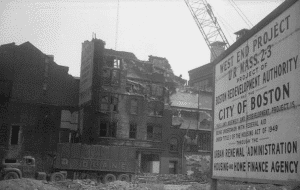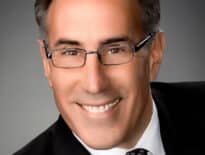Boston Mayor Michelle Wu is seeking to extend urban renewal powers in nine areas through December as city officials study how to protect affordable housing and open space.
In an order submitted to the Boston City Council, Wu said the administration would let five of the city’s 14 urban renewal plans expire this spring while extending the rest through the end of the year.
The administration needs additional time to plan for the future of more than 1,300 parcels with land disposition agreements connected to urban renewal powers. The restrictions include those protecting housing affordability and open space.
“Today we begin the process of winding down urban renewal’s legacy in Boston as part of a broader effort to build transparency and accountability for our shared growth and prosperity,” Wu said in a statement. “This order will give our departments the time to map out a larger plan and come back to present later this year.”
Urban renewal parcels sold or leased to developers typically have 40-year restrictions on use of the property, noted Matthew Kiefer, a real estate attorney at Goulston & Storrs.
“The first issue is to make sure the city retains the authority to continue to implement those restrictions and requirements, like affordability and open space,” Kiefer said.
All 14 urban renewal plans, applying to more than 3,000 acres of properties, were extended by six years in 2016. At the time, the Boston Planning & Development Agency agreed to catalog all land disposition agreements within the urban renewal areas and existing restrictions, including the number of affordable housing units.
Additionally, the BPDA agreed to put together a plan to preserve affordable housing and open space on the affected parcels when the urban renewal plans end, and to identify which properties it will retain and which would be disposed of to redevelopers.
Extending nine of the plans until December would give the administration and city council time to prevent “unintended negative consequences” from the move, and potentially requires state legislation to protect some uses, the mayor’s office announced Monday.
The creation of the Boston Redevelopment Authority in 1957 set the stage for the city’s urban renewal heyday in the 1960s including the clearance of West End tenements to make way for the Charles River Park residential high-rises. Scollay Square was replaced by the Government Center complex, including the new Boston City Hall.
But community opposition to urban renewal emerged in the 1960s. Puerto Rican activists formed Inquilinos Boricuas En Accion (IBA) in 1968 to fight redevelopment plans in the South End. Sections of Roxbury were cleared to make way for a planned citywide high school and the Southwest Expressway, projects which never reached fruition, and left vacant lots that only recently have been targeted for redevelopment.
“These [urban renewal plans] were designed in an era of urban decline, and an attempt in a very assertive way to stimulate investment in central cities and do major surgery to keep cities from failing,” Kiefer said. “That’s not the city we’re in anymore. The challenges we face now are mostly the challenges of growth.”
The nine plans that would expire in December include the Fenway Urban Renewal Plan, the Campus High School Urban Renewal Plan in Roxbury, the South Cove Urban Renewal Plan, the Charlestown Urban Renewal Plan, the Downtown Waterfront-Faneuil Hall Urban Renewal Plan, the Government Center Urban Renewal Plan, the South End Urban Renewal Plan and the Washington Park Urban Renewal Plan.
Wu’s office said the city’s new chief of planning will set the direction for the process.
Editor’s note: This report has been updated with comment from attorney Matthew Kiefer at Goulston & Storrs.




 |
| 




